Resources for thanksgiving
This week, many people in Fairbanks and across the country will be celebrating Thanksgiving. This can be a challenging holiday for many reasons, so we wanted to provide some resources to help folks navigate this time.
Our climate justice work is deeply rooted in principles of a Just Transition, which show us how the fight for a livable climate is inextricably linked with the fight for Indigenous sovereignty, and we believe that cultivating solidarity is a critical aspect of this relationship.
Thanksgiving is a holiday that has long been based on a whitewashed story of unity (the opposite of true solidarity), erasing the reality of the aggression and racism already present in the region during the fall of 1621, and the many years of brutal genocide that followed. When we use holidays like this to erase the truth of the past, there is no chance for true solidarity in the present. In order to be able to stand arm in arm across race and culture, we must start by taking inventory of our shared history.
In doing so, we must acknowledge the lies we have been told in the story of this holiday, but we must also look at the deep roots of the practices surrounding the holiday. Thanksgiving is a practice that has been undertaken by many Indigenous groups since time immemorial, at many different times throughout the year, as a way to show gratitude and to share resources without the expectation of anything in return. When seen through this lens, the practices of giving thanks and of sharing resources can be seen as radical acts of capitalist and colonial resistance. To cultivate gratitude under a system that only works on the belief that one can never have enough (land, resources, money, power, etc.) is a deeply subversive act. And when we share resources freely, we’re resisting the colonialist urge to own and practicing powerful alternatives to capitalism - alternatives that have been practiced successfully by Indigenous populations for centuries.
The current holiday of Thanksgiving has served to erase this true history - one of genocide, but also of Indigenous resistance and practices of anti-capitalist and anti-colonial alternatives. For many Indigenous and non-Indigenous people, it is a time of mourning - a refusal to give thanks for genocide and instead focus on truth-telling. For some, this holiday is irredeemable. Meanwhile, others have attempted to practice it in new ways - joining together with family, sharing food, and giving thanks, but in ways that acknowledge the reality of the history of the holiday, spark difficult conversation, and seek to re-Indigenize the holiday.
However you choose to acknowledge (or not) this time, all holidays can be a hard time for many, including LGBTQ people, people who anticipate difficult conversations with family with differing political opinions, and those with a complex or alienated relationship with their family. Here are some resources for self-care, having difficult conversations, self-education, and action.
Live Trainings
JVP Bay Area Training Nov 21st, 6 pm PST: How to Not Ruin the Holidays: An Anti-Zionist Guide to Initiating Difficult Conversations About Israel.
SURJ “Rethinking Thanksgiving” webinar, Nov. 19th, 12:30-2:30
Self-Care Resources
Podcast: Taking care of yourself as a trans person during the holidays
A comprehensive resource for self and community care
Hard conversations
Israel/Hamas war talking points
Narrative guide around Israel and Palestine
Podcast: “Crossing boundaries” with Aziz Abu Sarah
Video: Islamophobia killed my brother. Let's end the hate
Video: Anti-Semitism, Intersectionality, and Wokeness
Self Education
Rethinking Thanksgiving toolkit
SURJ Holiday Resources for Difficult Conversations
How to Support Your Partner of Color at Your White Family's Holiday Gathering
Taking Action
Donate to Native People’s Action
Donate to Smokehouse Collective
Submit your comment to BLM on the proposed Ambler Road project
Volunteer at the Bread Line or Food Bank
